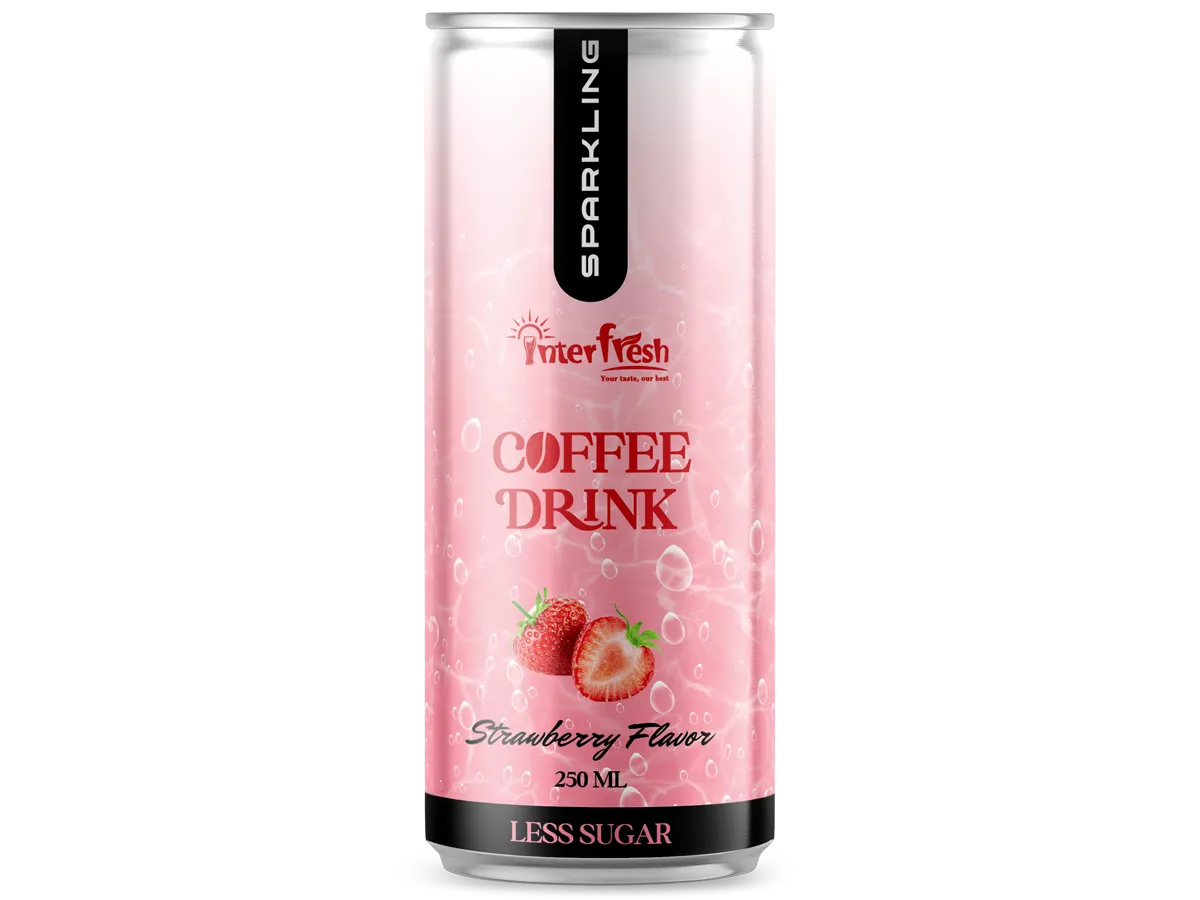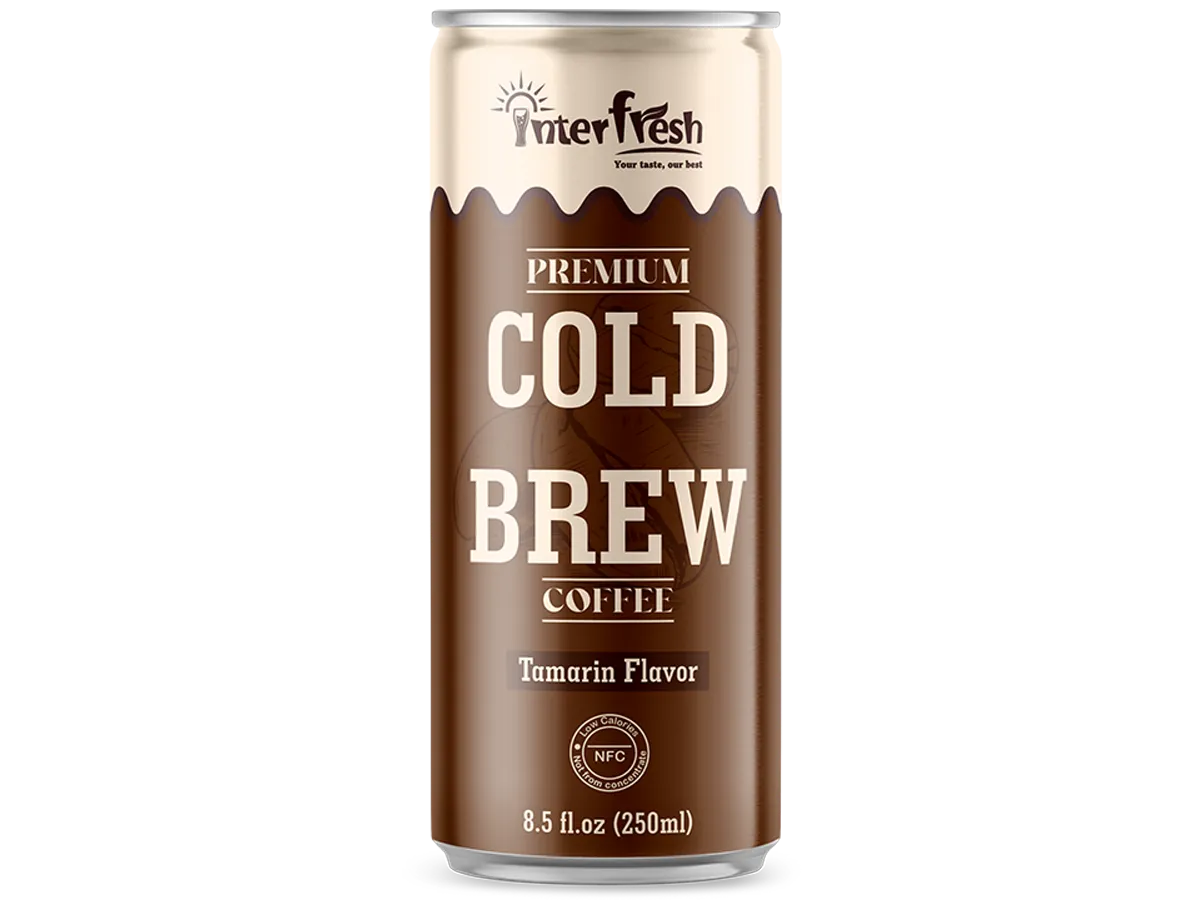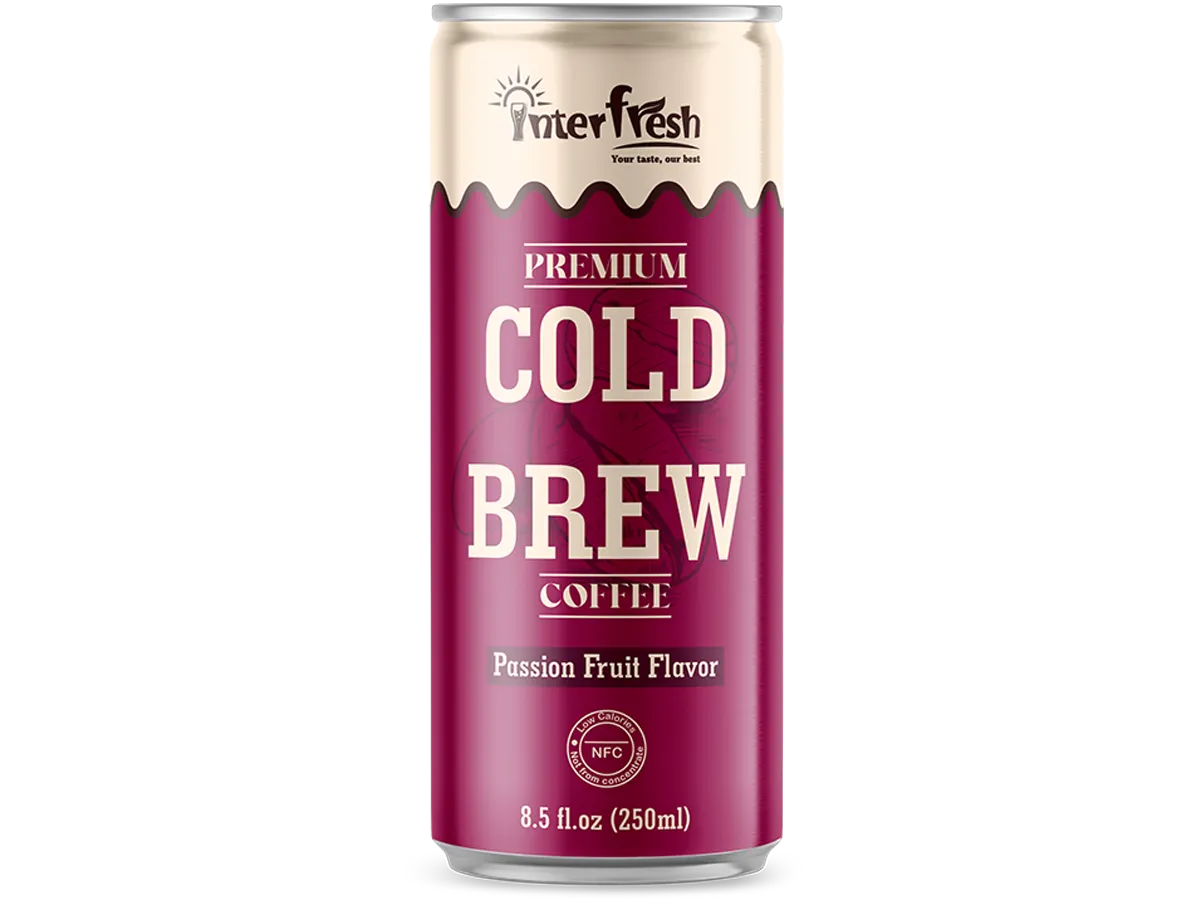Vietnamese coffee, renowned for its bold flavor and unique brewing method, is a cultural icon that has captured the attention of coffee lovers worldwide. Made with robusta beans and often served with sweetened condensed milk, it’s celebrated for its rich taste and potent kick. But is Vietnamese coffee strong? Interfresh, a Vietnam-based exporter of premium superfoods to over 80 countries, offers high-quality Vietnamese coffee for consumers and B2B partners. This guide explores the strength of Vietnamese coffee, its caffeine content, brewing techniques, health benefits, and how Interfresh’s products deliver an authentic experience.
Table of Contents
- 1 What Makes Vietnamese Coffee Unique?
- 2 Caffeine Content: Is Vietnamese Coffee Strong?
- 3 Why Is Vietnamese Coffee Considered Strong?
- 4 Health Benefits of Vietnamese Coffee
- 5 Vietnamese Coffee vs. Other Coffee Types
- 6 How to Enjoy Vietnamese Coffee
- 7 Safety and Considerations
- 8 Interfresh’s Vietnamese Coffee Products
- 9 References
What Makes Vietnamese Coffee Unique?
Vietnamese coffee is typically brewed using:
-
Robusta Beans: Vietnam is the world’s largest producer of robusta, which has double the caffeine of arabica beans (2-4% vs. 1-2% caffeine by weight).
-
Phin Filter: A slow-drip metal filter creates a concentrated, bold brew, unlike espresso or pour-over methods.
-
Sweetened Condensed Milk: Often served as cà phê sữa (milk coffee), adding creamy sweetness, or as cà phê đen (black coffee) for a pure, strong taste.
-
Serving Style: Small servings (60-120 ml) maximize flavor intensity, often iced in hot climates.
For those asking, “Is Vietnamese coffee strong?”, its strength comes from high caffeine robusta beans, concentrated brewing, and small serving sizes, delivering a potent energy boost.
Caffeine Content: Is Vietnamese Coffee Strong?
The caffeine content of Vietnamese coffee varies by preparation and serving size. Below is a breakdown:
|
Drink |
Serving Size |
Caffeine Content |
Notes |
|---|---|---|---|
|
Vietnamese Coffee (Phin, Black) |
100 ml (3.4 oz) |
100-200 mg |
Robusta beans, slow-drip |
|
Vietnamese Coffee (with Milk) |
120 ml (4 oz) |
100-180 mg |
Slightly diluted by milk |
|
Espresso (Single Shot) |
30 ml (1 oz) |
60-80 mg |
Arabica-based, less potent |
|
Brewed Coffee (Drip) |
240 ml (8 oz) |
95-165 mg |
Larger volume, less concentrated |
|
Interfresh Vietnamese Coffee |
100 ml (3.4 oz) |
100-180 mg |
Premium robusta, customizable |
Key Points:
-
Robusta’s High Caffeine: Robusta beans contain 2.2-2.7% caffeine (vs. 1.2-1.5% for arabica), making Vietnamese coffee stronger than most arabica-based drinks like drip coffee or lattes.
-
Concentrated Brew: The phin filter’s slow drip (5-10 minutes) extracts more caffeine, resulting in 100-200 mg per 100 ml, rivaling energy drinks (e.g., Red Bull, 80 mg/250 ml).
-
Small Servings: A typical 100-120 ml serving delivers a high caffeine dose in a compact volume, enhancing perceived strength.
For those asking, “Is Vietnamese coffee strong?”, it’s among the strongest coffee types due to robusta beans and concentrated brewing, with caffeine levels comparable to a double espresso but in a smoother, richer form.
Why Is Vietnamese Coffee Considered Strong?
Beyond caffeine, Vietnamese coffee feels strong due to:
-
Bold Flavor: Robusta’s earthy, bitter notes create a robust taste, unlike milder arabica.
-
Slow Extraction: The phin filter maximizes flavor and caffeine extraction, unlike faster brewing methods.
-
Cultural Perception: Served in small, intense doses, it’s designed for a quick, powerful boost, popular in Vietnam’s bustling cafés.
-
Contrast with Milk: The sweetness of condensed milk in cà phê sữa amplifies the coffee’s intensity, making it feel stronger.
For those wondering, “Is Vietnamese coffee stronger than espresso?”, it often matches or exceeds espresso’s caffeine (100-200 mg vs. 60-80 mg per serving) and feels stronger due to robusta’s bold profile.
Health Benefits of Vietnamese Coffee
Enhanced Energy and Focus
With 100-200 mg caffeine per serving, Vietnamese coffee boosts alertness and concentration by blocking adenosine receptors. For those asking, “Is Vietnamese coffee good for energy?”, it’s ideal for students, professionals, or athletes needing a quick lift.
Antioxidant Support
Vietnamese coffee, made from robusta beans, is rich in antioxidants like chlorogenic acids, reducing inflammation and supporting heart health. For those curious about “Does Vietnamese coffee have antioxidants?”, it offers benefits similar to green tea, though with more caffeine.
Metabolic Boost and Weight Management
Caffeine increases metabolism by 3-11%, aiding fat burning. For those asking, “Is Vietnamese coffee good for weight loss?”, 100-200 mg daily (1-2 servings) supports weight management when consumed black or with minimal milk.
Cognitive Function
Caffeine enhances memory and reaction time, while antioxidants protect brain health. For those wondering, “Is Vietnamese coffee good for brain health?”, moderate intake supports focus, especially in high-stress settings.
Women’s Health
Vietnamese coffee reduces fatigue and improves mood, benefiting women during menstruation or menopause. Its antioxidants support skin health, addressing “Vietnamese coffee benefits for women”.
Pregnancy Considerations
Limit caffeine to 200 mg daily during pregnancy to avoid risks. For those asking, “Is Vietnamese coffee safe during pregnancy?”, one small serving (100 ml) is typically safe, but consult a doctor.
Vietnamese Coffee vs. Other Coffee Types
|
Coffee Type |
Caffeine (per 100 ml) |
Bean Type |
Best For |
|---|---|---|---|
|
Vietnamese Coffee |
100-200 mg |
Robusta |
Bold energy, rich flavor |
|
Espresso |
200-266 mg |
Arabica |
Quick boost, concentrated |
|
Drip Coffee |
40-70 mg |
Arabica |
Mild, daily drinking |
|
Cold Brew |
80-120 mg |
Arabica |
Smooth, refreshing |
For those asking, “Is Vietnamese coffee stronger than other coffees?”, it surpasses drip coffee and matches espresso in caffeine, with a bolder taste due to robusta and phin brewing.
How to Enjoy Vietnamese Coffee
Recommended Intake: 1-2 servings (100-240 ml) daily, providing 100-400 mg caffeine, addressing “How much Vietnamese coffee is safe daily?”. Overconsumption (>400 mg) may cause jitters or insomnia.
Global Recipes:
-
Classic Cà Phê Sữa Đá: Brew 100 ml Interfresh Vietnamese coffee with a phin, mix with 2 tbsp condensed milk, and serve over ice, popular in North America.
-
Coconut Coffee: Blend with coconut water for a hydrating twist, trending in Asia-Pacific.
-
Lemon Coffee: Add a splash of lemon juice for a zesty, Vietnamese-inspired drink, favored in Europe.
These confirm “Is Vietnamese coffee healthy?” when consumed mindfully, offering antioxidants and energy. For those asking, “Can I drink Vietnamese coffee on an empty stomach?”, it’s generally safe but may cause mild irritation; pair with food if sensitive.
Safety and Considerations
Vietnamese coffee is safe in moderation, answering “Is it OK to drink Vietnamese coffee every day?”. Precautions include:
-
Caffeine Overload: Excess (>400 mg) may cause anxiety, rapid heartbeat, or sleep issues.
-
Condensed Milk: High sugar in cà phê sữa impacts weight management or diabetes; opt for black coffee or minimal milk.
-
Sensitivity: Start with 50-100 ml if new to robusta’s strength.
-
Medical Conditions: Consult a doctor for heart issues, anxiety, or pregnancy.
-
Detox Claims: Provides antioxidants but doesn’t detox, addressing “Does Vietnamese coffee detox the body?”.
Interfresh’s Vietnamese Coffee Products
Interfresh, a B2B-focused exporter, offers premium Vietnamese coffee, certified organic, Halal, and ISO 22000-compliant. Our range includes:
Vietnam Coffee Beverage Manufacturer | OEM & Exporter of Coffee Drinks
250ml Interfresh Black Coffee, Less Sugar | Vietnamese OEM Coffee Drink Supplier
Vietnam Coffee Beverage Manufacturer | OEM & Exporter of Coffee Drinks
Sparkling Coffee Drink Less Sugar with Strawberry Flavor (250ml / 8.45oz Can)
Vietnam Coffee Beverage Manufacturer | OEM & Exporter of Coffee Drinks
Sparkling Coffee Drink Less Sugar with Passion Fruit Flavor (250ml / 8.45oz Can)
Vietnam Coffee Beverage Manufacturer | OEM & Exporter of Coffee Drinks
Sparkling Coffee Drink Less Sugar with Original Flavor (250ml / 8.45oz Can)
Vietnam Coffee Beverage Manufacturer | OEM & Exporter of Coffee Drinks
Sparkling Coffee Drink Less Sugar with Orange Flavor (250ml / 8.45oz Can)
Vietnam Coffee Beverage Manufacturer | OEM & Exporter of Coffee Drinks
Sparkling Coffee Drink Less Sugar with Lemon Flavor (250ml / 8.45oz Can)
Vietnam Coffee Beverage Manufacturer | OEM & Exporter of Coffee Drinks
Sparkling Coffee Drink Less Sugar with Apple Flavor (250ml / 8.45oz Can)
Vietnam Coffee Beverage Manufacturer | OEM & Exporter of Coffee Drinks
250ml Interfresh Passion Fruit Cold Brew Coffee – Wholesale Distributor
Frequently Asked Questions (FAQs)
Yes, Vietnamese coffee is strong, with 100-200 mg caffeine per 100 ml due to robusta beans and phin brewing, rivaling espresso.
It matches or exceeds espresso (100-200 mg vs. 60-80 mg per serving) and feels stronger due to robusta’s bold flavor.
Yes, it boosts energy, cognition, and heart health with antioxidants, but moderate intake (1-2 servings) to avoid caffeine overload.
Yes, 1-2 servings (100-240 ml) daily is safe, answering “Is it OK to drink Vietnamese coffee every day?”. Limit milk for sugar control.
Limit to 100 ml (100-180 mg caffeine) daily with medical consultation, addressing “Vietnamese coffee benefits during pregnancy”.
Vietnamese coffee is stronger (100-200 mg vs. 40-70 mg per 100 ml) and bolder, thanks to robusta and phin brewing, answering “Is Vietnamese coffee stronger than drip coffee?”.
Vietnamese coffee is undeniably strong, delivering 100-200 mg caffeine per 100 ml through robusta beans and phin brewing, making it a potent rival to espresso and energy drinks. Its health benefits include energy, antioxidant support, and weight management, though moderation is key due to caffeine and optional milk. Interfresh’s premium Vietnamese coffee, crafted in Vietnam, offers authentic flavor and B2B customization for global markets, from Miami to Melbourne. Consult a healthcare provider for specific needs, especially during pregnancy. Start your coffee journey with Interfresh’s Vietnamese coffee at interfresh.com.vn.
References
-
Nehlig, A., et al. (2010). Caffeine and the central nervous system: Mechanisms of action. Brain Research Reviews. Available at: https://pubmed.ncbi.nlm.nih.gov/20837076/
-
WebMD. (2024). Coffee: Health Benefits and Nutrition. Retrieved from: https://www.webmd.com/diet/health-benefits-coffee
-
Healthline. (2023). Vietnamese Coffee: Benefits and Caffeine Content. Retrieved from: https://www.healthline.com/nutrition/vietnamese-coffee
-
World Health Organization. (2020). Healthy Diet Guidelines. Retrieved from: https://www.who.int/publications/i/item/9789240017474
-
Interfresh. (2025). Product Certifications and Sourcing Standards. Available at: https://interfresh.com.vn










